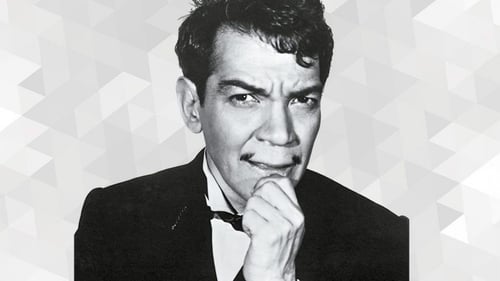Nikolai Rimsky-Korsakov
Nascimento : 1844-03-18, Tikhvin, Novgorod Governorate, Russian Empire [now Leningrad Oblast, Russia]
Morte : 1908-06-21

Music
Um boxeador problemático vai morar com a mãe e o irmão autista, mas precisa se encaixar em uma família com a qual não convive há anos.

Music
It’s Christmas in the Ukrainian village of Dikanka and the blacksmith Wakula is unhappily in love with Oksana, daughter of a landowner. She only wants to marry him on the condition that he gets her the Tsarina's golden shoes. In desperation, Wakula turns to the devil to fly him to the capital and help him procure the shoes. Will this be enough to win the hand of Oksana?

Music
Lying in bed, Tsar Dodon dreams of retirement. The problem is, people keep invading his country. His astrologer offers him a golden cockerel with magical powers, a weather vane which indicates from which direction danger will come. In his case, it will be from the East in the shape of a charming oriental princess determined to conquer his kingdom.

Writer
Pushkin folk tale as comedic opera whose sultry elements expand an Oriental influence. Korsakov portrays the story of Tsar Nicholas II, punished for his cowardice and despotism, using satire to condemn Russia's autocratic ruler.

Writer
Snegurochka was born in times of old in Tsar Berendey’s mythical kingdom, the fruit of the union between Spring the Beauty and Grandfather Frost. Protected by her parents from the jealousy of the Sun god Yarilo who has vowed to warm her heart when she gets older and falls in love, Snegurochka the snow maiden is entrusted to the wood sprite…Aida Garifullina sings the role of Snegurochka whilst the production and musical direction have been left in the capable hands of two other Russian artists: the young conductor Mikhail Tatarnikov and director Dmitri Tcherniakov.

Original Music Composer
Snegurochka was born in times of old in Tsar Berendey’s mythical kingdom, the fruit of the union between Spring the Beauty and Grandfather Frost. Protected by her parents from the jealousy of the Sun god Yarilo who has vowed to warm her heart when she gets older and falls in love, Snegurochka the snow maiden is entrusted to the wood sprite…Aida Garifullina sings the role of Snegurochka whilst the production and musical direction have been left in the capable hands of two other Russian artists: the young conductor Mikhail Tatarnikov and director Dmitri Tcherniakov.

Original Music Composer
‘A beautiful song – a shame that it shows such disrespect to the Mayor!’ This remark from the score of The Golden Cockerel highlights the delicious ambiguity of this work. Principally inspired by Washington Irving and Pushkin, Rimsky-Korsakov called on the talents of Vladimir Belsky, an author of other libretti of a fairy-tale, legendary nature and an expert on Russian folk literature. The composer, a genius at orchestration, has given us sparkling music, with oriental touches, that creates fully rounded characters. This is the perfect occasion for Alain Altinoglu to direct his first opera in his new role as Music Director of La Monnaie. After the success of his Don Quichotte and Cendrillon, Laurent Pelly returns to La Monnaie to stage this exuberant political satire, an adventure in unrestrained rhythm. More than a century has passed since its first performance, yet the opera has lost none of its boisterous sarcasm.

Music
Following celebrated productions of Prokofiev's 'Semyon Kotko' and Shchedrin's 'The Left-Hander', Valery Gergiev continues his survey of uniquely Russian works with 'The Golden Cockerel', Rimsky-Korsakov s final and, arguably, most mysterious opera. This vibrant new production mixes live action with CGI, and is the vision of Anna Matison, an acclaimed playwright, script-writer, film director and producer. 'The Golden Cockerel' was Matison s directorial debut with the Mariinsky, and saw her also take on the roles of production and costume designer. The melodious nature, beauty and leitmotifs of the plot are underscored by the production designs; the opera uses pantomime and masquerades, while the sets utilised 3D video projections.

Writer
Opera lies at the heart of Rimsky-Korsakov's colourful idiom, but performances are few and far between; this realisation of his penultimate and grandest stage work is a very rare and special experience. Kitezh is known as "the Russian Parsifal", which encapsulates its mystical flavour and steady unfolding of a legend of redemption

Original Music Composer
Opera lies at the heart of Rimsky-Korsakov's colourful idiom, but performances are few and far between; this realisation of his penultimate and grandest stage work is a very rare and special experience. Kitezh is known as "the Russian Parsifal", which encapsulates its mystical flavour and steady unfolding of a legend of redemption

Original Music Composer
A famous writer of detective stories goes blind and becomes involved in a scheme organized by his lover and the gardener of the house.

Original Music Composer
Nikolai Rimsky-Korsakov's dazzling opera by-line in seven tableaux. The epic journey of Sadko a sea-faring minstrel from Novgorod, his wife Libava and their encounters with Volkhova, a sea Princess and the court of her parents the Tsar and Tsarina of the Sea. Sadko traveling on his ship "Falcon" also meets visiting foreign merchants from India (a Hindu), Scandinavia (a Varangian) and Italy (a Venetian) singing of the magic of their own lands to try and lure him. In the seventh tableaux Sadko is reunited with his wife, thinking his journey a dream, until he sees his fleet of ships coming up the newly created river Volkhova and realizes his sea Princess has transformed herself into the river in order to create the gateway to the ocean for Novgorod. In conclusion Sadko leads the hymn of praise and everyone rejoices their good fortune.

Original Music Composer
Nina Ananiashvili dances the dual roles of Mlada and Cleopatra in this acclaimed production of composer Nikolai Rimsky-Korsakov's "Mlada," directed by Boris Pokrovsky and choreographed by Andrei Petrov. Voislava, the daughter of a scheming prince, is forced to present his rival's bride with a poisoned ring so Voislava can marry him instead -- and her father can take over his kingdom. Will she get her just desserts when the gods intervene?

Musical
The story is based on the legend of the Invisible City of Kitezh, which disappears under the waters of a lake to escape an attack by the Mongols.

Original Music Composer
The story is based on the legend of the Invisible City of Kitezh, which disappears under the waters of a lake to escape an attack by the Mongols.

Opera
Filmed adaptation of Rimsky-Korsakov's opera.

Music
Filmed adaptation of Rimsky-Korsakov's opera.

Original Music Composer
Film version of the Rimsky Korsakov opera from the Pushkin story. Motsart i Salyeri (Mozart and Salieri), based on a legend that Salieri poisoned Mozart, meditates on the nature of creativity while introducing, in brilliantly compressed speeches, what was to be one of the important Russian themes—metaphysical rebellion against God.

Original Music Composer
Venetian merchant Marco Polo travels to the East and the court of Kublai Khan who makes him an emissary and sends him on diplomatic missions throughout his empire. Over many years, Polo learns new cultures and languages, but he is haunted by the face of a mysterious woman whom he had met before leaving Venice and encounters her face in every woman he sees. Eventually returning to Venice to share his exotic and esoteric knowledge, Marco Polo once again finds the woman of his dreams. The Adventures of Marco Polo was an original, live television musical which was broadcast on NBC on April 14, 1956.

Original Music Composer
Sadko is based on an opera by Nikolai Rimsky-Korsakov, which was based on a Russian epic tale of the same name. In the old Russian city of Novgorod, the merchants are feasting in a gorgeous palace and Sadko is bragging that he can bring to their land a sweet-voiced bird of happiness. They laugh at him, but he is offered help by the Ocean King's daughter, who is mesmerized by Sadko's singing and is in love with him. The hero is destined to visit many lands in his search of the bird. First shown in the USA in 1953 with English subtitles. This entry is for 1962 English-dub by Roger Corman's Filmgroup, which runs about 8 minutes shorter (removes much of the music) than the Russian original (see, Sadko, 1953)

Story
Sadko is based on an opera by Nikolai Rimsky-Korsakov, which was based on a Russian epic tale of the same name. In the old Russian city of Novgorod, the merchants are feasting in a gorgeous palace and Sadko is bragging that he can bring to their land a sweet-voiced bird of happiness. They laugh at him, but he is offered help by the Ocean King's daughter, who is mesmerized by Sadko's singing and is in love with him. The hero is destined to visit many lands in his search of the bird. First shown in the USA in 1953 with English subtitles. This entry is for 1962 English-dub by Roger Corman's Filmgroup, which runs about 8 minutes shorter (removes much of the music) than the Russian original (see, Sadko, 1953)

Additional Soundtrack
Cantinflas, um "teso" mexicano que ganha a vida como ele pode, aceita um trabalho como um mágico, como um adivinho do passado, o presente e o futuro dos outros... mas é incapaz de adivinhar as dificuldades que o aguardam quando aceita substituir um príncipe oriental, posando como seu duplo. Muitos e poderosos inimigos tentarão matar o suposto príncipe. Dardos envenenados, punhais, pistolas, sequestros, todos os meios são bons para destruir o duplo infeliz do príncipe.

Music
Performances of three well-know compositions. An orchestra plays Flight of the Bumblebee. Carlos Ramírez sings The Donkey Serenade with a boy on penny whistle. Finally, Ramírez and Lucille Norman sing lyrics to Tales from the Vienna Woods. (This film appears in its entirety within MGM's short feature, "The Great Morgan")

Music
The bored Shahriyar is being entertained by odalisques and his favourite wife Zobeide. At the advice of his younger brother Shahzeman, who is convinced of Zobeide’s unfaithfulness, Shahriyar departs to go hunting. An orgy begins in the harem, and when it is at its height the Sultan returns unexpectedly. He orders his concubines, eunuchs and slaves be killed. Zobeide prays to him to spare her life, but, not receiving Shahriyar’s consent, kills herself.





















